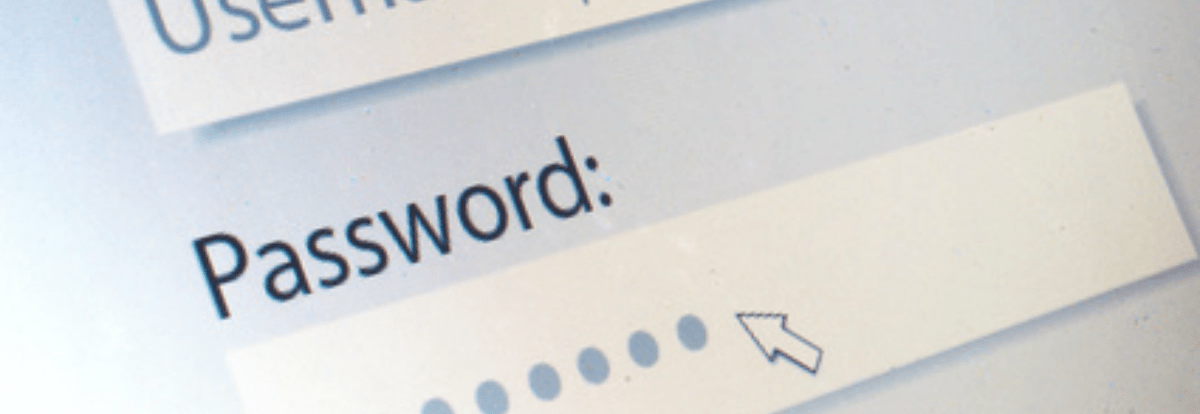
Welcome To The Data Leak Lawyers Blog
We focus on the latest news surrounding data breaches, leaks and hacks plus daily internet security articles.

We focus on the latest news surrounding data breaches, leaks and hacks plus daily internet security articles.

A recent postbox theft at a GP surgery in Norwich has demonstrated the sometimes unexpected forms that data crime can come in. In late May, Hellesdon Medical Practice is understood to have informed its patients that a postbox had been stolen by an unknown person, causing a severe data breach due to the private correspondence it contained.
Data security incidents like this may be relatively small in scale compared to the huge cyberattacks affecting large companies in the digital age, but they still have the potential to severely impact the victims. The Hellesdon Medical Practice data breach also raises questions about how we can ensure the security of documents sent in the post, particularly when we don’t have the benefit of firewalls and encryption, as we often do in digital data transfer.
Any data exposure incidents involving physical records should be treated with the seriousness they deserve, as they can still constitute a breach of data protection law. Where a third-party data controller fails to effectively protect your information, you could be eligible to claim compensation for the harm caused.

In February last year, it was revealed that Redcar and Cleveland Council had fallen prey to a cyber-attack, bringing many of its online resident services to a standstill for a prolonged period of time. Although systems were eventually repaired and services reinstated, the effects of the cyberattack are still being felt now, over a year after the attack, primarily in the huge financial toll it took on the council.
In fact, the government has been set to intervene to help the council with the funding, after millions of pounds were expended on the effort of rebuilding its systems. The prolonged recovery work raises questions about whether Redcar and Cleveland Council’s systems should have been stronger in order to defend against the attack in the first place, and whether the council had an attack response plan in place before they were hit.
This all shows how costly an attack can be, and why it is always so much better to take preventative action instead of an event taking place.

Despite looking up private police records without authorisation, a Detective Sergeant has recently evaded dismissal following a misconduct hearing. In the Northamptonshire detective data breach case, the Detective Sergeant reportedly looked up the details of a woman with whom he was engaging in an extra-marital relationship with at the time, who was involved in a case he was working on.
His actions reportedly amounted to misconduct, so the Northamptonshire Police appear to be sending mixed messages by not taking the matter any further. The police can, and often do, dismiss officers for similar offences, but this officer’s acceptance of the accusations against him, and his standing in the force, seem to have allowed him to avoid further consequences.
Police data breaches like this should be treated with the severity that they merit, taking account of the potential damage such actions can cause. Police services cannot afford to let employees off lightly for breaching data access regulations, as doing so could risk compromising the force’s reputation and its overall data security and integrity.

Around two years ago, the Police Federation of England and Wales was hit by a cyberattack, and we began taking claims forward soon after the data breach incident occurred. Although it was initially believed that no personal information affected, it was nevertheless a possibility that employee data may have been exposed to unauthorised access.
The case against the Police Federation is one of many data breach group actions we are pursuing. As leading specialists in data breach claims, we are fighting for justice in a number of high-profile actions, including those against Equifax, Virgin Media and British Airways.
As with all our data breach group actions, we are offering No Win, No Fee representation to eligible victims of the Police Federation data breach. You can contact us today if you are considering starting a claim.

We have been approached for help following the Accident Exchange – AX data breach – which is understood to have occurred earlier this year in January. The company is said to have suffered a cyberattack which led to the exposure of client information, with an external third-party accessing the company’s systems.
Those affected by the breach have recently been notified by AX (formerly Accident Exchange) that their personal information might have been affected, though it is still unclear exactly what details may have been exposed in all cases.
We have already begun taking on claims for those affected, who could be in line to receive compensation for the exposure of their private data. All companies are legally obliged to protect the data in their possession and, when they fail to do so, they can be liable to pay damages for a breach of data protection law.

NHS CCTV cameras have reportedly been embroiled in a hack affecting security footage across the globe, after security company Verkada is understood to have been breached by hackers. It is said that live streams for as many as 150,000 Closed-Circuit Television (CCTV) cameras may have been viewed by unauthorised users.
Serving organisations include prisons, general businesses, schools and even psychiatric hospitals. The breach of Verkada’s cameras may have exposed the identities of many people working in, living in, or visiting affected institutions.
It is unclear exactly which feeds hackers may have viewed and what they gleaned from the footage, but it is nevertheless worrying to learn that a security firm has been subjected to such a wide-reaching breach. There is currently no evidence that any NHS camera feeds were viewed by hackers, but Verkada lists the NHS as one of its clients on the company website. Hackers have also claimed that they have been able to access the cameras of any of the affected organisations.

Recent coverage has revealed that action taken by bank employees and police prevented some £45m of fraud in 2020, saving customers from the loss of an average of almost £6,000 each. The figure is a testament to the success of the Banking Protocol scheme that encourages banks and the police to work together to protect consumers.
However, the huge £45m sum is also a sign of the scale of fraud in the UK. As leading, specialists in data protection law, we believe that the link between data breaches and fraud is a problem that needs to be addressed. When a third-party organisation fails to protect your personal information, it may be leaked into the hands of cybercriminals, who may attempt to steal from you via various kinds of manipulative scams.
We believe that it is essential that all data controllers are held to account when they fail to observe their legal duties. We have helped thousands of consumers to recover the compensation that they deserve, so we encourage any data breach victims to come forward for free, no-obligation advice on their potential claims.

In June 2018, the Shurgard data breach came to our attention, and we began to advise those affected by the incident. It was found that an internal error had led to personal information about employees being mistakenly shared, allegedly with all employees in the company.
It may seem that internal company data breaches are not as severe as those that provoke widespread public data exposure but, in fact, incidents such as these can be highly serious for those affected. Data protection errors must be avoided in all circumstances, as even the most basic of mistakes can have harmful implications.
All businesses and organisations in possession of personal data have a legal obligation to protect this information to the best of their abilities. Where they fail to meet this obligation, it can constitute a breach of data protection law. Those affected by the Shurgard data breach, or any other incident like this, may have a right to recover compensation for a data breach incident. To hear more about your potential right to claim, contact our specialist data breach team for free, no-obligation advice.

In June 2018, it was revealed that survey company Typeform had suffered a data breach. The company reportedly became aware of the issue on 27th June, identifying that an attack had led to hackers downloading what was described to be a “partial backup” of its customer data. When we learned of the breach, we offered advice to those affected, and victims may still be able to make a Typeform data breach claim as part of the action that we are pursuing.
In accordance with UK data protection law, all those who disclose their information to third parties have a right to the protection of their personal information. Typeform’s customers, therefore, justifiably expected that they could trust Typeform with their data. Unfortunately, instead, some were greeted with the news that their information had been exposed.
As leading specialists in data breach claims, Your Lawyers (t/a The Data Leak Lawyers) helps those affected by data exposure to claim the compensation that they deserve. Although three years have passed since the Typeform data breach was revealed, more victims may still have a chance to make a claim, so contact our team for more advice if you were affected. We are already helping others on a No Win, No Fee basis.

As a standard recommendation of IT professionals and security specialists, many of us will be aware that it is advisable to use a range of passwords, but we believe that the importance of this advice cannot be understated. Many studies have shown that people continue to risk their data security by reusing passwords across their online accounts, and this is dangerous.
There is now a whole subsection of cybercrime built around the theft and misuse of account credentials, so it is vital that consumers do not put themselves at greater risk by reusing passwords.
Personal information is a highly valuable resource to cybercriminals, and passwords can be particularly profitable, given that they can sometimes unlock private accounts containing further personal information. A password is meant to be a key form of protection, so why are we compromising this security technique by reusing passwords?
EasyJet admits data of nine million hacked
British Airways data breach: How to claim up to £6,000 compensation
Are you owed £5,000 for the Virgin Media data breach?
Virgin Media faces £4.5 BILLION in compensation payouts
BA customers given final deadline to claim compensation for data breach
Shoppers slam Morrisons after loyalty points stolen
Half a million customers can sue BA over huge data breach
Lawyers accuse BA of 'swerving responsibility' for data breach
The biggest data breaches of 2020
Fill out our quick call back form below and we'll contact you when you're ready to talk to us.